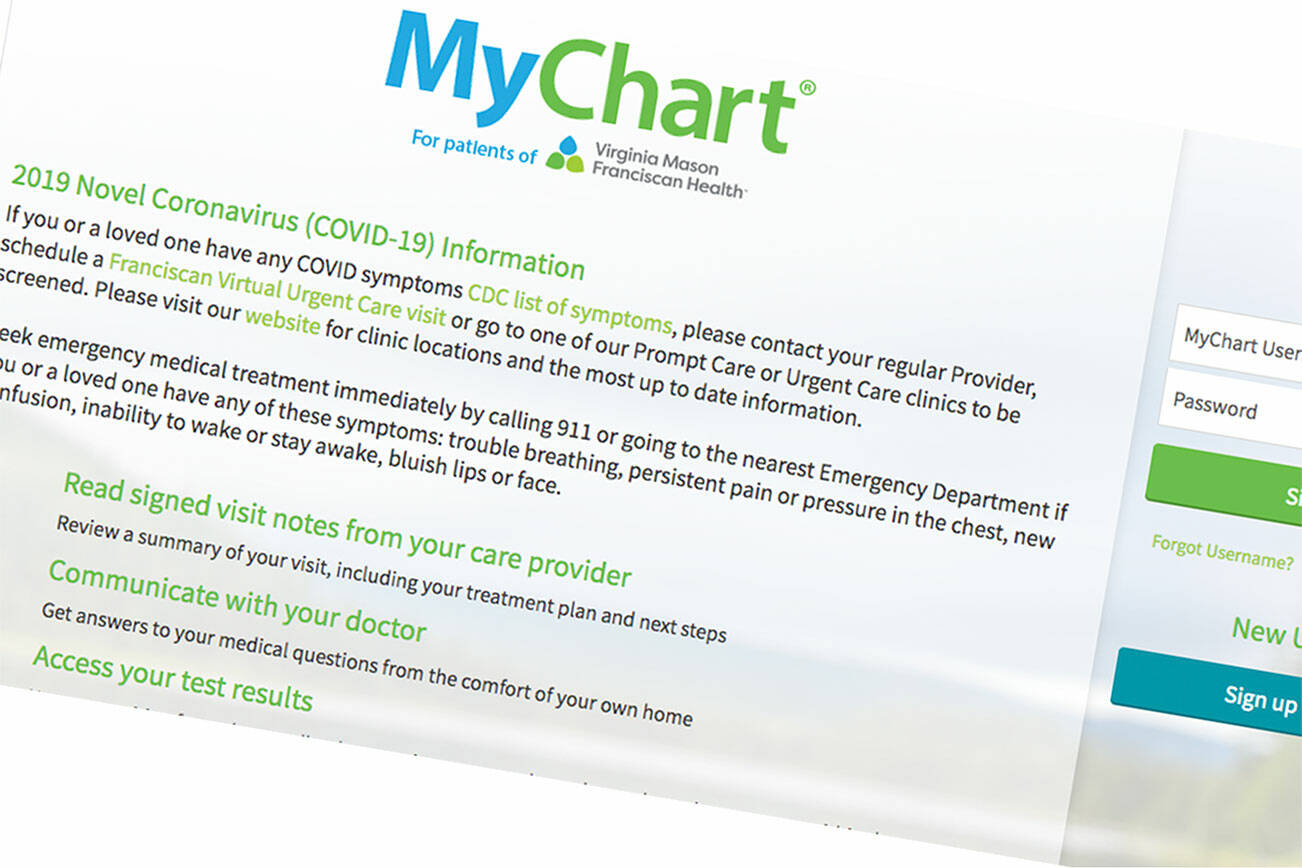Virginia Mason Franciscan Health’s patient portal, MyChart, appears to be back online after a month-long outage due to a ransomware attack.
The health provider’s parent company, CommonSpirit Health, announced that the company was “managing an IT security incident” at the beginning of October, adding that some systems like MyChart had to be taken down and various appointments rescheduled.
Several clinics were also affected by the situation, including Enumclaw’s Franciscan Medical Clinic and St. Elizabeth Hospital, though how much of an impact was made on these facilities is unclear. The company confirmed Oct. 13 that this incident was a ransomware attack; ransomware is malicious software (malware) designed to lock down a computer system until a sum of money is paid.
It seems that MyChart became at least somewhat accessible around last Friday, Oct. 21 . It’s unclear if that means other systems have been restored as well; for example, some people have said they can access test results, but are unable to pay bills.
However, CommonSpirit has not updated its FAQs page about the attack since Oct. 17, writing, “we are working diligently every day to bring systems online and restore full functionality as quickly and safely as possible. We will post relevant updates to our website (this page).”
That said, this might not mean everything is right as rain for CommonSpirit and Virginia Mason Franciscan Health. Comparitech reports that after a ransom is paid, an “average amount if data is recovered” 65% of the time, and all data is recovered about 8% of the time. Less than half the data is returned about 29% of the time.
This all means issues with appointments, medicines, tests, and procedures could persist into the future.
AFFECTED RESIDENTS
Several locals messaged or emailed the Courier-Herald how they or their loved ones were affected by the ransomware attack and MyChart outage.
“My husband’s doctor’s office called to reschedule his appointment last minute, stated his doctor was going to be out until December. They scheduled him with someone else for as soon as possible. My husband was at work at the time of the call and was to distracted/busy to write everything down. Normally that would be no worry cause MyChart sends reminders and allows for an early check-in,” wrote Rianna Dawson. “His missed it, tried to reschedule but they aren’t currently making appointments. My husband has to see the doctor every three months in order to receive a much-needed prescription. So now he hangs in the balance, not knowing when he will receive his meds. He tries signing in or checking MyChart daily, also has his pharmacy contacting the doctor’s office trying to get the permission to refill.”
“I have a herniated disc and I’m unable to schedule my follow up appointment with the specialist because they can’t process the referral or schedule appointments,” Branndi Otero wrote. “It’s super frustrating that I’m just waiting here in pain for this to be resolved.”
“I had an appointment scheduled with my PCP Dr. Dane Bay… on Oct. 7. I had heard earlier in the week about the ransomware attack and I just crossed my fingers hoping my appointment wouldn’t be rescheduled. My husband had an appointment at the same clinic a few days before my appointment and was able to see his PCP, but he said it was just a mess and really stressful on the staff with no access to patient history,” wrote Erica Dunham. “I received a call the day before my scheduled appointment and it had to be rescheduled. I completely understood, and it was rescheduled for Oct. 21. I received a phone call today (Oct. 21) that it would again have to be rescheduled. It’s really unfortunate and frustrating because there are numerous things I need to discuss, but I also understand that the doctors and staff on the front lines are just as frustrated if not, undoubtedly more… It’s rather scary that something like this could happen and literally cripple a huge chunk of the healthcare system that both patients and physicians rely on. Technology is great until it is not. I would like to know how the system was so vulnerable.”


